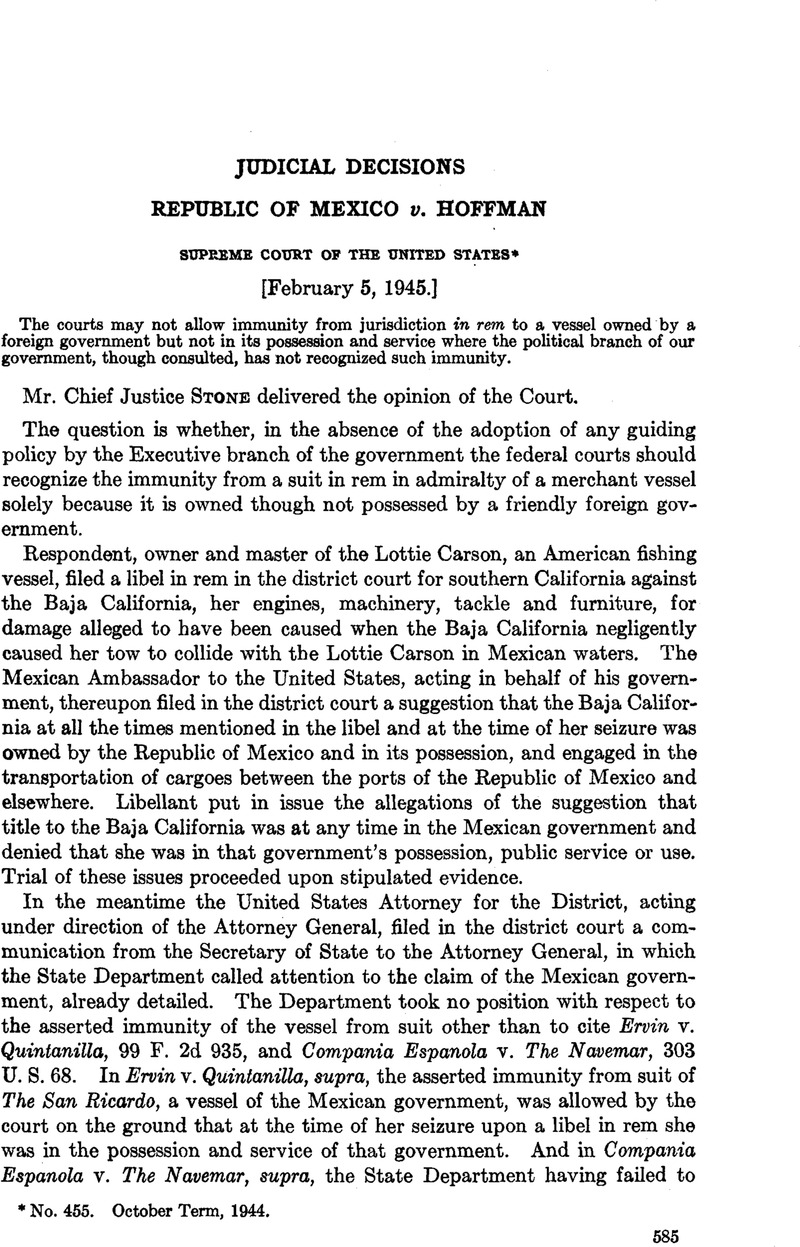No CrossRef data available.
Supreme Court of the United States*
Published online by Cambridge University Press: 25 April 2017

No. 455. October Term, 1944.
1 This salutary principle was not followed in Berizzi Bros. Co. v. S. S. Pesaro, 271 U. S. 562, where the court allowed the immunity, for the first time, to a merchant vessel owned by a foreign government and in its possession and service, although the State Department had declined to recognize the immunity. The propriety of thus extending the immunity where the political branch of the government had refused to act was not considered. Since the vessel here, although owned by the Mexican Government, was not in its possession and service, we have no occasion to consider the questions presented in the Berizzi case. It is enough that we find no persuasive ground for allowing the immunity in this case, an important reason being that the State Department has declined to recognize it.
2 The Cristina, 1938, A. C. 485, in which the immunity was recognized, seems to have proceeded on the ground that the possession taken in behalf of the friendly foreign government was actual. Similarly in The Arantzazu Mendi, 1939, A. C. 256, 263, the sovereign was “in fact in possession of the ship.” In The Jupiter, 1924, P. 236, 241, 244 (cf. The Jupiter No. 2, 1925, p. 69; The Jupiter No. 3, 1927, p. 122, 125), it appeared that before the suit was brought the master had repudiated the possession and ownership of the plaintiffs and held the vessel for the claimant government. And in The Porto Alexandre, 1920, p. 30, 34, the vessel had been requisitioned under the order of the foreign government and on the particular voyage was carrying freight for that government. In The Annette; The Dora, 1919, p. 105, 111, an alternative ground of decision was that the sovereign had parted with possession. The Court said:” If it is not in possession, the Court interferes with no sovereign right of the government by arresting the vessel, nor does it, by arresting the vessel, compel the government to submit to the jurisdiction or to abandon its possession.“